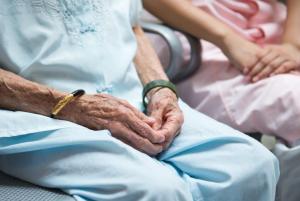Dementia and Human Rights – Part 12
We are now part the way through the UN Convention of the Rights of Persons with Disabilities, I was up to Article 27 so here goes from that point:
So Article 28 is adequate standard of living and social protection. This obviously links to the previous Article about employment and the equal right to remuneration, but is also about ensuring that they have equal food, clothing and housing. In order to safeguard and promote these rights, the State should ensure access to clean water services and makes a particular point of protecting women and girls in respect of poverty reduction services. This is relevant to the UK, as statistics still show that men earn more than women, even in the UK. The pay gap has narrowed over the decades, but it still exists. In part it relates to job opportunities and parenting decisions, which are gender structural, in that women give birth and breast feed and men don’t, which usually means that women have a career break to have children and men don’t and women often return to work part time for a while whilst the children are young, all of which affects a woman’s career opportunities.
The Article goes on to say that the State should support people with disabilities from poverty and provide disability related expenses, so in the UK we have a number of different benefits relating to disability and for people with dementia it is usually Attendance Allowance and if they are in care could also be Funded Nursing Care or NHS Continuing Care funding. But there are other benefits as well as those. To ensure their standard of living people with disabilities are entitled to public housing and to retirement state benefits and programmes in an equal basis to others.
Article 29 is the right to participation in political and public life. This really has two aspect to it, firstly it protects the right of the voter, so that people with disabilities can fully participate in public and political life, the voting process should be accessible, which includes that it should be free from intimidation and facilitated, so that if someone with a disability requires assistance to vote, then this should be allowed, and the assistant should be the person of their choice. The other half of this Article is about participating as a public figure, rather than as a voter. So people with disabilities should not just be allowed to take part in public life, but the State should actively encourage participation. The participation should be facilitated at an international, national, regional and local level to represent persons with disabilities. But their participation isn’t just limited to representation of others with disabilities, as they will have a unique perspective on that, but also participation in the activities and administration of public parties, and as such to represent all people, not just people with disabilities.
A while ago I went shopping with a very lovely lady who was blind, totally blind. We were with another friend and we had a wheelchair for her, as she had slightly compromised mobility, but she was fed up with being pushed and wanted to walk. My friend suggested that I sit in the wheelchair to know what it feels like, so on that day, I was being pushed down the road in a wheelchair by a blind woman, it was surreal!! But it helped me understand what being in a wheelchair is like, in a small way, except I was lucky enough to be able to get out of the wheelchair and walk when I wanted to. People also assumed that since it looked like I had a physical disability, that I also had mental health issues and didn’t always talk directly to me – very annoying!! Later when we were walking through the shopping centre chatting, the blind lady thanked me, as she said that I had treated her like everyone else, but asked me to describe where we were walking and the surroundings. It had never occurred to me to do that for her and it was such a small, easy thing to do. The point of this story is that people with disabilities are very good at representing people with disabilities to those that don’t have them, as if you don’t have a disability it is hard to understand what it is like to live with one. It is enlightening and humbling to understand what they go through and hence it is important that they are represented and are able to represent.






Leave A Comment